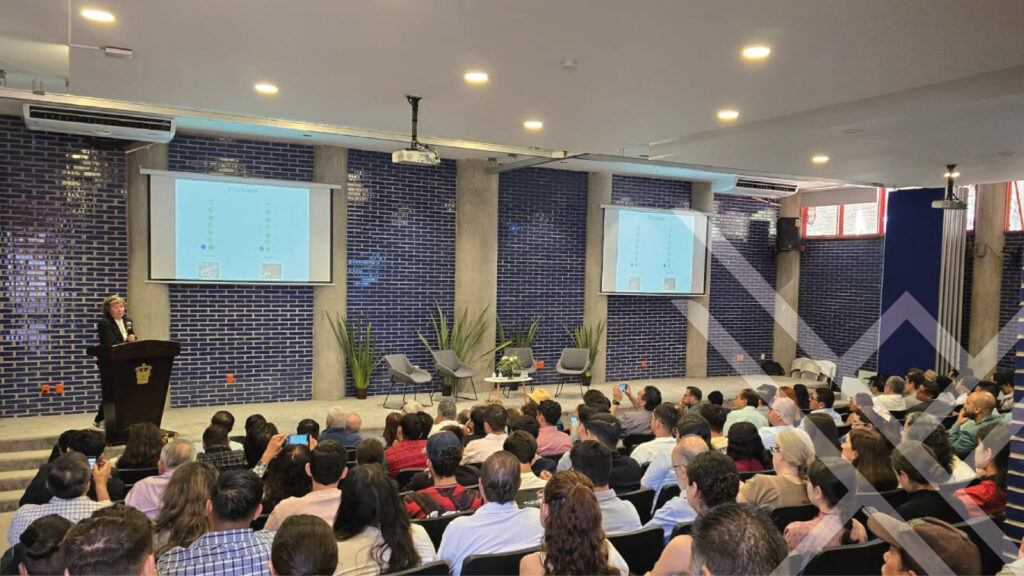During the recent Foro de Reindustrialización del Agave, leading voices from across the tequila industry came together to address the urgent need for sustainability in agave production. Among them was José Aceves, CEO of Casa Aceves, who emphasized that the path to transformation begins by reconnecting with those who work the land, empowering the supply chain, and building truly regenerative systems from the ground up. You can watch the full forum here.
The tequila industry is undergoing a necessary transformation, facing increasing pressure to align its agricultural and production methods with global sustainability goals. While significant strides are being made in regenerative agriculture and carbon reduction, the biggest challenge lies in scaling these initiatives—especially when Scope 3 emissions and the broader agave supply chain are taken into account.
Strengthening the Agave Supply Chain Through Regenerative Collaboration
Supporting Farmers with Practical Sustainability
One of the key barriers in reducing tequila’s carbon footprint is ensuring that agave suppliers adopt environmentally responsible practices. Many producers still burn agave leaves, over-fertilize, or till the land inefficiently—practices that hinder decarbonization efforts and damage the soil.
To address this, it’s critical to:
- Promote optimal fertilization and tilling methods.
- Train agave farmers in regenerative practices.
- Develop long-term relationships with committed, educated suppliers.
Building this collaborative supply network is essential for achieving sustainability goals across the industry.

Addressing Field-Level Environmental Impact
Preventing Deforestation and Biodiversity Loss
The expansion of agave plantations has led to the elimination of native flora and fauna, raising concerns about the industry’s ecological footprint. In response, the CRT (Tequila Regulatory Council) introduced the ARA Program, a recent initiative aimed at reversing damage caused by agricultural deforestation.
While promising, the program’s success depends on practical implementation and farmer participation. Progress means:
- Avoiding reforestation with monocultures.
- Ending agave leaf burning.
- Using biodiversity-respecting management plans.
Bridging the Disconnect Between Market and Field
A Two-Way Conversation
There is a growing disconnect between market expectations for sustainable tequila and the realities faced by those working the agave fields. Farmers struggle daily with overproduction, market volatility, and a lack of access to resources—yet are now being asked to align with SDG goals and reduce carbon and water footprints.
The key challenge:
- How do we connect premium market demand with on-the-ground needs?
Collaborative forums, educational campaigns, and sustainability committees are working to close this gap by:
- Creating shared content between academia, brands, and producers.
- Building collective tools for scaling regenerative agriculture.
- Empowering farmers to tell their own sustainability stories.
The Market’s Role in Driving Regenerative Agave
Narratives, Certifications, and Consumer Demand
Multinational companies are backing sustainable initiatives, but without consumer demand, they won’t scale. Regulation and storytelling are critical. The American market, for example, is increasingly invested in how tequila is made—often more so than local consumers in Mexico.
To transform demand, we must:
- Share authentic, Mexico-led stories about production.
- Promote certification programs and what they represent.
- Avoid demonizing or idealizing practices; instead, provide context.
As outlined in Why Transparency in Tequila Production Matters, owning the narrative is essential. We must guide how sustainable tequila is communicated globally.

Turning Sustainability into a Market Value
The future of regenerative agave depends on narrative convergence. We need:
- Consumers who understand and value circular agriculture.
- Brands that advocate for real, implementable impact.
- Policies that reward good practices and penalize exploitation.
By shaping the conversation, Mexico can lead—not follow—this shift in tequila’s production model.
Follow us on Instagram at @casa.aceves to catch up on our day-to-day in the tequila fields and learn more about regenerative production.
Aceves Spirits— Rooted in Agave, Empowered by Innovation.